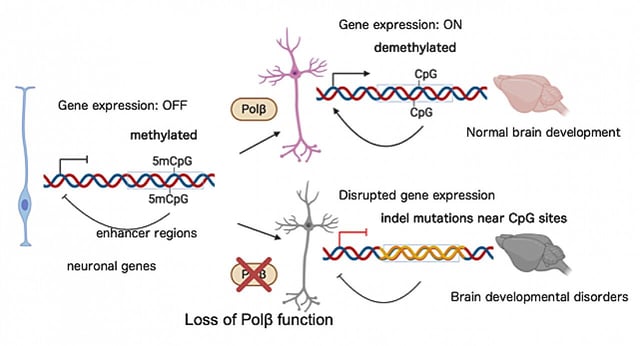Overview
- Polβ performs gap-filling repair at enhancer-associated CpG sites following TET-mediated demethylation, curbing DNA lesions in immature cortical neurons.
- Genetic loss of Polβ triggered an approximately ninefold rise in somatic insertion-deletion mutations near CpG dinucleotides and a fivefold increase in larger structural variants.
- Dynamic CpG demethylation, which activates gene expression during neuronal differentiation, generates DNA breaks that rely on Polβ for accurate repair.
- Mutation hotspots were enriched in neuronal genes, causing frameshifts and regulatory changes that implicate Polβ deficiency in potential neurodevelopmental disorders.
- The research team plans further studies to link Polβ dysfunction to specific brain disorders and to assess its broader relevance in cancer and aging.

